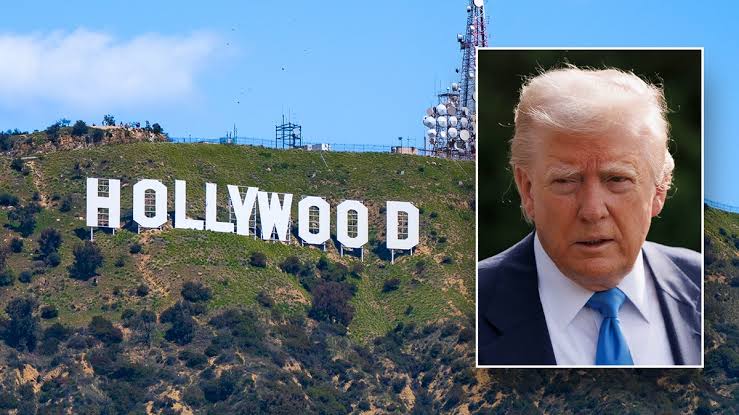- As China plans to cut back on American movie imports
The United States President Donald Trump has slammed a 100% tariffs on foreign films.
In a directive to the US Department of Commerce and Trade Representative, Trump cited a “concerted effort” by other countries to attract filmmakers and studios as the reason for the industry’s decline.
“It is, in addition to everything else, messaging and propaganda!” Trump said on his Truth Social platform. “WE WANT MOVIES MADE IN AMERICA, AGAIN!”
US Commerce Secretary Howard Lutnick responded to the latest announcement, saying, “We’re on it”.
But the details of the move are unclear. Trump’s statement did not say whether the tariff would apply to American production companies producing films abroad.
Several recent major movies produced by US studios were shot outside America, including Deadpool & Wolverine, Wicked and Gladiator II.
It’s also unclear if the tariffs would apply to films on streaming services, like Netflix, as well as those shown at cinemas, or how they would be calculated.
The UK’s Department for Culture, Media & Sport, the British Film Institute and the Motion Picture Association, which represents the five major US film studios, did not immediately respond to BBC requests for comment.
However, the governments of Australia and New Zealand have spoken out in support of their countries’ film industries.
“Nobody should be under any doubt that we will be standing up unequivocally for the rights of the Australian screen industry,” Australia’s Home Affairs Minister, Tony Burke, said.
In a related development, the China Film Administration (CFA) has announced plans to cut back on American movie imports – shifting its spotlight to films from other nations. The move, framed as a cultural pivot, comes as Beijing accuses Washington of weaponising tariffs.
A spokesperson for the CFA criticised the U.S. government for “abusing tariffs on China,” calling it a wrong move that would have broader cultural consequences.
According to CFA, such actions would “inevitably further reduce the domestic audience’s favorability towards American films,” reinforcing the rationale behind limiting Hollywood imports and promoting films from other countries.

